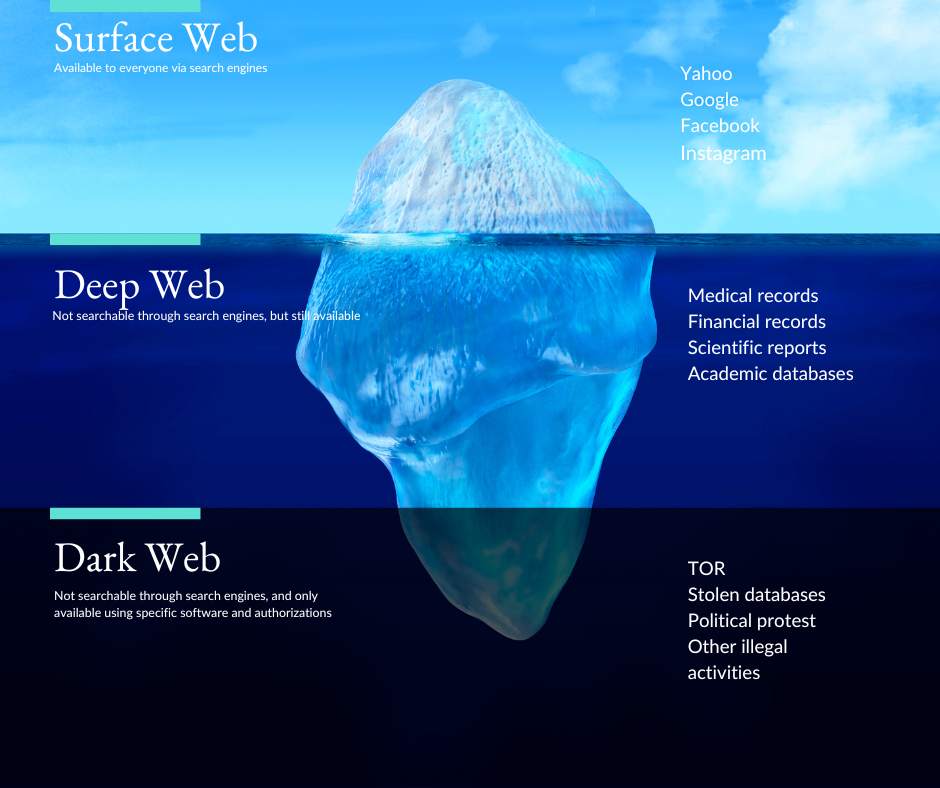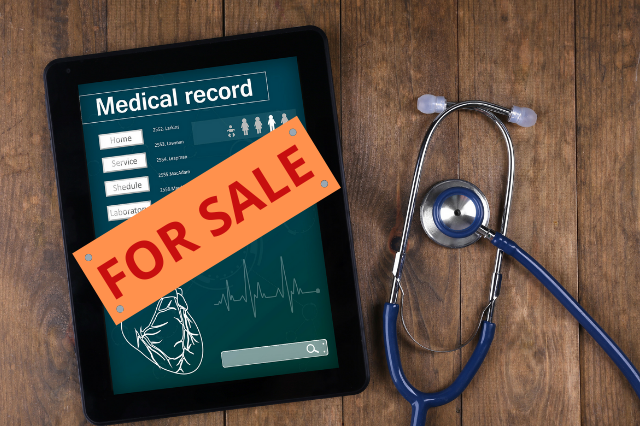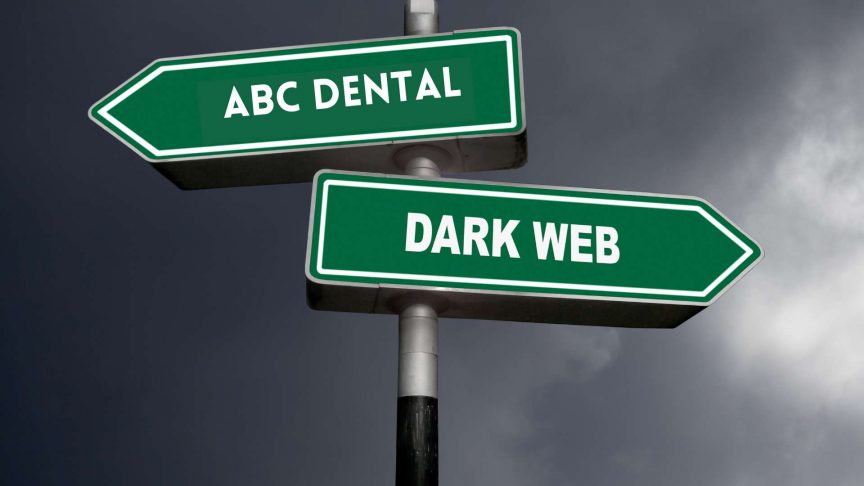The internet has become an indispensable part of our lives, allowing us to connect with others, access information, and conduct business online. But beyond the familiar surface of the web that most of us use every day, there is a hidden and more sinister part of the internet known as the dark web. In this article, we’ll take a closer look at what the dark web is and why dental offices should be monitoring it.
What is the Dark Web
The dark web is a part of the internet that is not accessible through traditional web browsers such as Google Chrome, Mozilla Firefox, or Safari. Instead, it requires the use of specific software and configurations to access, including the Tor browser. The Tor network was created with the intention of providing anonymous communication and is used by journalists, activists, and other groups who need to protect their privacy.
The dark web is also home to a number of illicit marketplaces and websites, where illegal goods and services can be bought and sold. This includes drugs, weapons, stolen data, and even malicious software. Due to the anonymous nature of the dark web and the encrypted connections used, it is often seen as a safe haven for cybercriminals, making it a hotbed of criminal activity.
In this graphic, you can see the 3 layers of the internet and its common uses.

Why is the Dark Web a Threat to Dental Offices?
Dental offices, like any other business or organization, are vulnerable to cyber threats. This is particularly true given the sensitive nature of the information that dental offices handle, including patient names, addresses, Social Security numbers, and medical records. If this information were to fall into the wrong hands, it could be used for identity theft, fraud, and other malicious purposes.
The dark web is a particular concern for dental offices because it is a place where sensitive information can be bought and sold. For example, a hacker might breach a dental office’s computer systems and steal patient information, which could then be sold on the dark web. In some cases, cybercriminals might even specifically target dental offices, as they are aware of the valuable information that they hold.
Medical records can command up to $1000 per record on the dark web, up to 50 times higher than credit card data.

Why Monitoring the Dark Web is Important for Dental Offices?
Monitoring the dark web can help dental offices to proactively protect themselves and their patients against cyber threats. By regularly scanning the dark web, dental offices can identify any sensitive information that may have been leaked or exposed. This can help them to take appropriate action to prevent identity theft, fraud, and other malicious activities.
For example, if a dental office discovers that its patient information has been stolen and is being sold on the dark web, it can take steps to secure its systems and inform affected patients. This could include changing passwords, implementing additional security measures, and notifying law enforcement.
It’s also worth noting that monitoring the dark web can help dental offices to comply with regulations such PIPEDA, PHIPA, HIA, PIPA and regulatory colleges which require organizations to take reasonable steps to protect patient information.
How Do You Monitor The Dark Web?
You can check your own email address for a breach using monitor.firefox.com. Professionally monitoring the dark web can be a complex and time-consuming task, which is why many dental offices choose to work with a specialist provider. These providers use specialized tools and techniques to scan the dark web for sensitive information and alert clients if any is found.
When choosing a dark web monitoring provider, it’s important to look for a company that has experience working with healthcare organizations and understands the specific security and regulatory requirements that dental offices face. You should also look for a provider that uses a range of techniques, including automated scans and manual checks, to ensure that no sensitive information is missed.
Quick tips to protect yourself:
To protect yourself if one of your contacts gets hacked, it’s important to be aware of the risks and to take steps to protect yourself.
- Be cautious when clicking on links or opening attachments in emails, especially if you are not expecting them or if they come from an unfamiliar source.
- Get security awareness training at least once per year to stay up to date on threats using technology.
- Use a professional to set up and manage your email.
- Take advantage of some of the economical email filtering solutions.
- Keep your computer up-to-date and consider using a computer security and maintenance solution.
- Use encryption or other security measures to protect the sensitive information that you send via email.
What to do if your email has been hacked.
- Change your password: The first step to secure your account is to change your password. Choose a strong and unique password that you haven’t used before. Do not re-use passwords.
- Enable two-factor authentication: This adds an extra layer of security to your account, requiring a code from your phone or another device in addition to your password.
- Check for suspicious activity: Log in to your email account and review your recent activity to see if there have been any unauthorized changes or activities. Check your ‘sent items’ folder.
- Update security questions and recovery information: Make sure your recovery information is up-to-date, so you can regain access to your account if necessary.
- Run a virus scan: Check your computer for any viruses or malware that might have been used to gain access to your email.
- Report the hack: Notify the email service provider and any relevant parties, such as your bank or employer, about the security breach.
- Consider hiring a professional: If your email contains sensitive information or the hack has caused major damage, consider hiring a professional to help recover your account and secure your information.

Together we can make the world safer online!
Her motto ‘no geek speak’, coupled with her humour and great story-telling, has made Anne one of Canada’s leading cybersecurity and privacy educators. Anne has dedicated her career to helping healthcare practice and small business owners understand technology, how to leverage it, and more importantly, how to do it safely. Over her 20+ years as an educator and tech innovator she has earned global awards for her efforts. Anne keeps the client as her ‘true north’ in how she creates affordable and effective tools and training for privacy & data security. Anne is on a mission to help everyone understand online threats and be able to defend themselves at home and at work when using technology.
Reach out to Anne for speaking engagements, training, and consulting.

